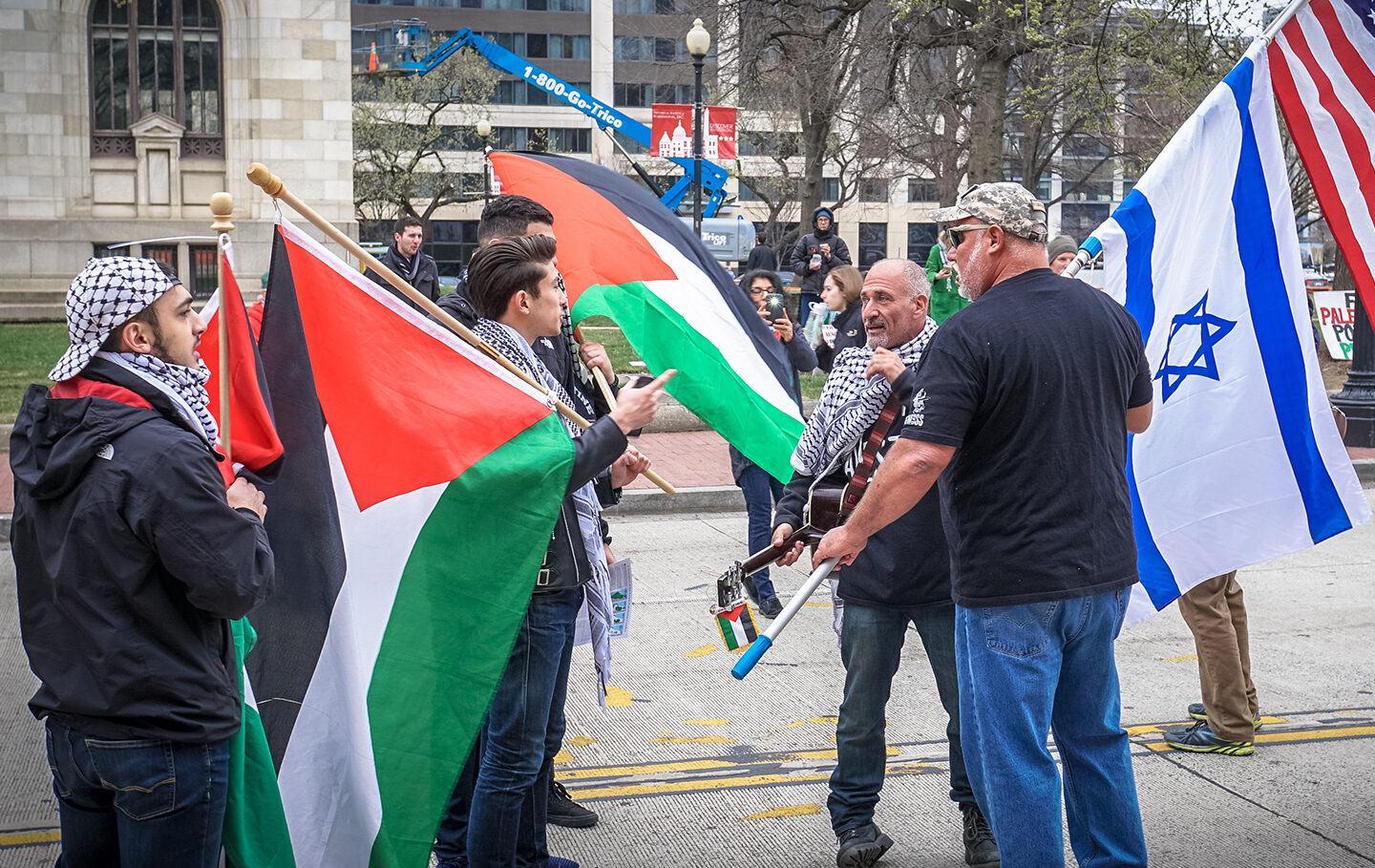I’ll tell you what happens in American universities against Israel. Professor Molle speaks

What happens in American universities? Conversation with Andrea Molle, associate professor of Political Science and International Relations at Chapman University in Orange, California
A red thread unites the two sides of the Atlantic crossed by the same fibrillation found in American universities as in Italian squares. From Piazza Duomo in Milan to the Columbia campus, it is always the Israeli-Palestinian issue that splits public opinion and mobilizes consciences. But according to Andrea Molle , associate professor of Political Science and International Relations at Chapman University in Orange, California, this trait common to the two democracies as well as many others in the world also reveals one of the underlying flaws of a system so polarized that it favors propaganda to the same historical data.
Protests in US universities and campuses are spreading. What do students want?
The objective is to make universities embrace the agenda and goals of the so-called BDS movement, an acronym that includes the words Boycott, Disinvest and Sanction which aims to hit Israel, its economy and its institutions by making them pay the price of the conflict with Palestinians.
What specifically are asked of universities?
He is asked to terminate academic agreements with Israeli universities but also contracts with companies linked more or less directly to the Jewish state or its government.
Who in particular makes these requests?
These are advanced by some student groups that operate at a national level and have ramifications in individual universities. The most active is certainly the one called Students for Justice for Palestine, which stands out for its very strong anti-Zionist propaganda. We are talking about organizations that in some cases enjoy funding from countries such as Qatar.
What are they doing, how are these protests developing?
The groups in question have organized several "walk outs", i.e. collective exits from classrooms, but also set up camps or actual tent cities on campuses like the one installed in the Columbia park or at the universities of California and Texas. There were even demonstrations at my university in Orange.
What's happening at your university?
Here too, students have abandoned lessons several times, although the situation is now relatively calm, amidst generally peaceful demonstrations, debates and readings. Luckily there were no scuffles here despite counter-demonstrations involving Jewish students as protagonists.
While the situation is under control in Orange, the same cannot be said for Columbia.
Yes, there is a distinction to be made between quieter universities like mine and militant ones like Columbia or Berkeley. Truly unpleasant incidents occurred here including the invitation, to put it mildly, to Jewish students to return to Poland. These are the phenomena that have alarmed public opinion and even politics.
President Biden himself condemned anti-Semitism , albeit with a statement that was deemed a gaffe.
I would say that Biden managed the miracle of repeating more or less what Trump said seven years ago after street clashes triggered by a far-right demonstration. Trump said there were good people on both sides.
But is it really a gaffe in your opinion?
In truth, Biden's words betray desperation at the risk of alienating the left-wing component of his party but also that part of the electorate that sympathizes with the Jews and Israel. It is therefore inevitable that those who write their speeches act as a tightrope walker.
It is not only with Israel that the American political scene appears polarized.
This is not just an American problem but a global one. After all, in Italy yesterday we saw scenes very similar to those we witness in the USA.
The Israeli-Palestinian issue is as shocking as few others.
This is true, and in my opinion the problem is that on the left, where the Palestinian cause has been embraced since at least the 1960s, no attention has been paid to the Nazi drift of Hamas. We tend to ignore, for example, that movements like Hezbollah are purely fascist.
The other side will also be wrong in something.
Unfortunately, even those on Israel's side tend to ignore the mistakes made by Israeli governments, in particular those presided over by the current Prime Minister Netanyahu, surrounded by ultra-Orthodox and religious right leaders who have unacceptable attitudes.
In the midst of this cheering there are also those who lose sight of the historical data themselves and therefore the complexity of an issue that is not only intricate but ancient.
Very true, even between the opposing camps the date to which the controversy dates back is arbitrarily chosen. We therefore have those who start everything from 1948, the year of the foundation of Israel, and those who trace the conflict back even to the Arab colonization which took place shortly after the death of Muhammad and in ways that some prefer to gloss over.
Despite such a difficult and painful history, the tendency of many is to simplify.
He is right here too. Unfortunately, simple messages are those that gather the greatest consensus, even if the result is to paint the picture in black and white, blaming only one party and transforming the other into a pure and simple victim. But in this way, by portraying one's own side as the only one that is right, the result we were talking about before is produced, namely polarization.
This is a machine translation from Italian language of a post published on Start Magazine at the URL https://www.startmag.it/mondo/universita-americane-proteste-israele-intervista-molle/ on Fri, 26 Apr 2024 07:35:13 +0000.
